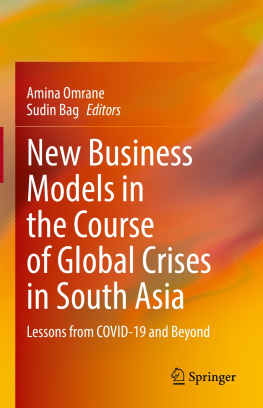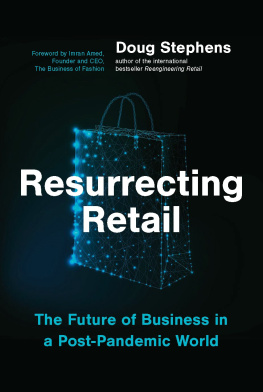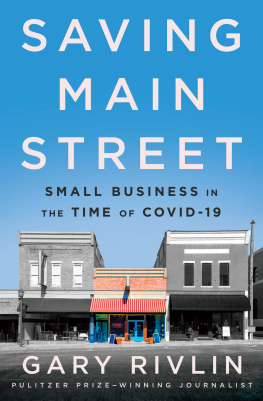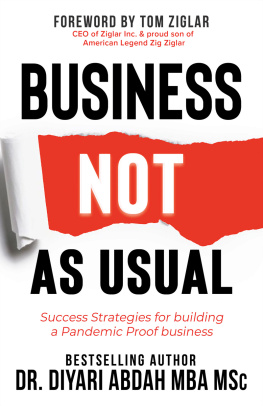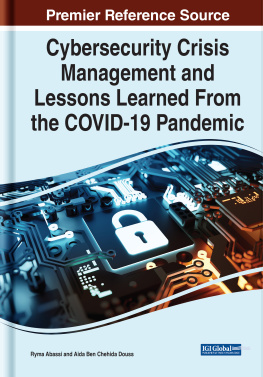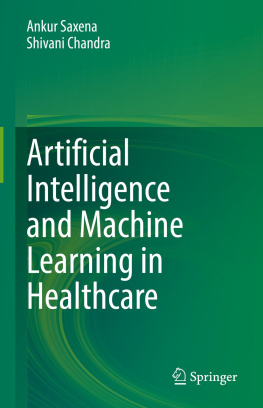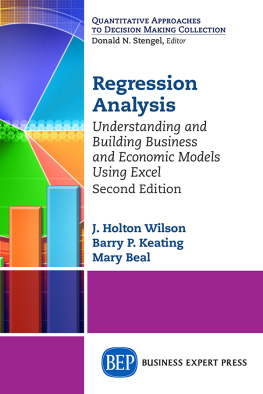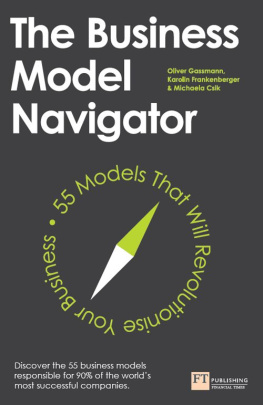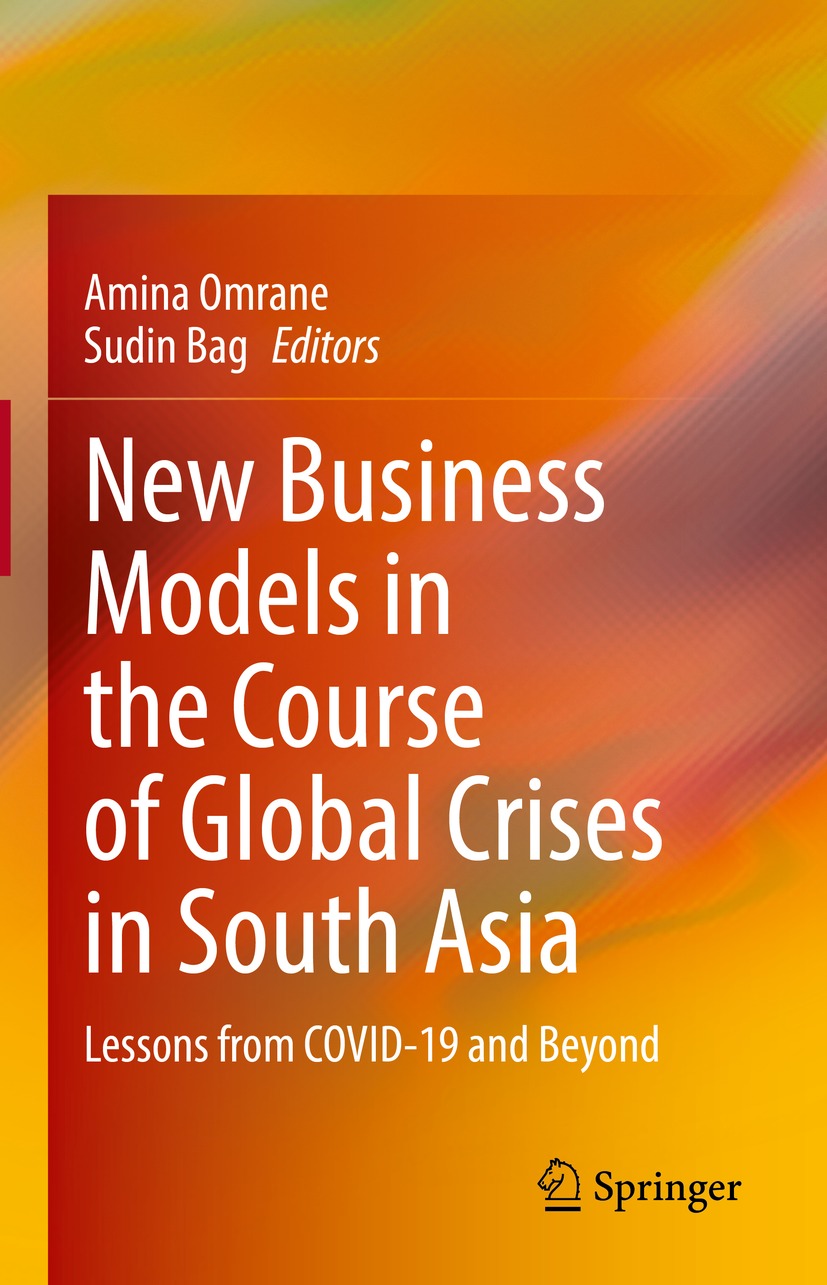Editors
Amina Omrane
Department of Management Science, University of Sfax and University of Carthage, Sfax, Tunisia
Sudin Bag
Department of Business Administration, Vidyasagar University, West Bengal, India
ISBN 978-3-030-79925-0 e-ISBN 978-3-030-79926-7
https://doi.org/10.1007/978-3-030-79926-7
The Editor(s) (if applicable) and The Author(s), under exclusive license to Springer Nature Switzerland AG 2021
This work is subject to copyright. All rights are solely and exclusively licensed by the Publisher, whether the whole or part of the material is concerned, specifically the rights of translation, reprinting, reuse of illustrations, recitation, broadcasting, reproduction on microfilms or in any other physical way, and transmission or information storage and retrieval, electronic adaptation, computer software, or by similar or dissimilar methodology now known or hereafter developed.
The use of general descriptive names, registered names, trademarks, service marks, etc. in this publication does not imply, even in the absence of a specific statement, that such names are exempt from the relevant protective laws and regulations and therefore free for general use.
The publisher, the authors and the editors are safe to assume that the advice and information in this book are believed to be true and accurate at the date of publication. Neither the publisher nor the authors or the editors give a warranty, expressed or implied, with respect to the material contained herein or for any errors or omissions that may have been made. The publisher remains neutral with regard to jurisdictional claims in published maps and institutional affiliations.
This Springer imprint is published by the registered company Springer Nature Switzerland AG
The registered company address is: Gewerbestrasse 11, 6330 Cham, Switzerland
Preface
In the twenty-first century, doing business is becoming not only a complex but also a crucial process for marketers and businesspersons, as the environmental scene has witnessed several unexpected and unpredicted events, crises, and new phenomena. More especially, during the last couple of decades, the society has experienced several natural disasters that had been not preventable and then hard to alleviate, due to their devastating impacts on society and business as a whole. We can cite for instance the 2004 Indian Ocean earthquake and tsunami, the Cyclone Nargis which struck Myanmar in 2008, as well as the 2010 Port-au-Prince earthquake in Haiti. Besides, the different viruses related diseases, such as SARS-CoV, MERS-CoV, BAT-CoV, and then SARS-CoV-2 (COVID-19), have altered the normal life of the human being from all aspects.
When it comes to worldwide business and how it is evolving in the globe, it will be important to stress the rapid changes it has undergone during the last years. In fact, nothing is stable in the present situation and the rate of uncertainty is out of imagination. Similarly, the social complexity and level of ambiguity are becoming unmanageable, so that the current environment becomes qualified as VUCA, pointing out its volatility, uncertainty, complexity, and ambiguity. Moreover, the coronavirus crisis has taken a toll on the global arena so that multiple procedures and initiatives have been applied to recuperate this devastation. Therefore, business areas and orientations have needed some sorts of new approaches to cope with this VUCA context and to fight against such a calamity. New business models have also been required to ensure new value creation, sustainable growth, and development. Such models should be adaptive, resilient, innovative, and successful in generating profits.
In this perspective, the present book represents the outcome of sustained efforts and collective considerable workings undertaken by many researchers and professors in order to highlight the reinvented and new business models and trends that will offer new shapes and bring up novelty about adaptive strategies, new skills, and operational methods/means, required for those new VUCA versatile situations.
Creating and improving value in todays competitive world business requires also an understanding of powerful and resilient business models that improve business performance in terms of high-quality produce, proper customer service, pool of motivated and competent frontline employees, customers loyalty, as well as implementation of appropriate strategies.
The present book intends then to bring up novelty by gathering specific knowledge regarding the sustainability of a business in this global crisis, the application of Artificial Intelligence (AI) and Machine Learning (AL) in managing human resources, the building of a brand during the Act-Of-God Periods, the harnessing of new opportunities by SMEs during this COVID-19 pandemic, and so on.
By the way, the present book has been designed by keeping in mind the current sanitary situation in order to provide an in-depth understanding of the strategies and operational modes by which an organization can survive in this highly uncertain business environment. By taking into consideration the main effects of the coronavirus turmoil, and the way by which it has weakened the economy of many nations in the world and yielded a business slowdown during this period, this book will help business managers, entrepreneurs, and policymakers to find out new reflections and orientations to fight against such kind of future uncertainties efficiently.
For this purpose, this book entitled New Business Models in the Course of Global Crises intends to present a coherent framework and a conclusive overview of adaptive successful strategies and new business models implemented by organizations to fight against global crises. It includes 15 chapters which address issues and provide insights into all the elements stated above.
The first chapter represents an empirical study undertaken to understand and demystify the behavior of the higher education faculties in India during the COVID-19 pandemic lockdown. It emphasizes the main effects of e-learning, anxiety and dissatisfaction, concern for students, and health consciousness and precautionary measures on the harmonious lifestyle.
The second chapter focuses on how academicians use their self-leadership skills and innovativeness during global uncertain situations, like the COVID-19 crisis. It stresses that they have taken up new challenges through their innovative behavior of e-learning and enhanced, in turn, their self-efficacy aptitudes as well as their job satisfaction.
The third chapter investigates the different factors, which are responsible for the engagement of teachers in an Indian Higher Education Institute (HEI) and hence contribute to carry on uninterrupted teaching-learning, research, and community engagement during the pandemic.
The fourth chapter considers the main impacts of COVID-19 pandemic on business continuity in certain developed (i.e., USA and China) and developing (i.e., Pakistan and India) economies. It also covers the PAMA principle (Plan, Adapt, Monitor, and Assess) proposed by the International Chamber of Commerce (ICC) to minimize the risks and to sustain the business operations during the epidemic turmoil. Such principle basis turns around following prescribed precautions and choosing online sources for business continuity.

